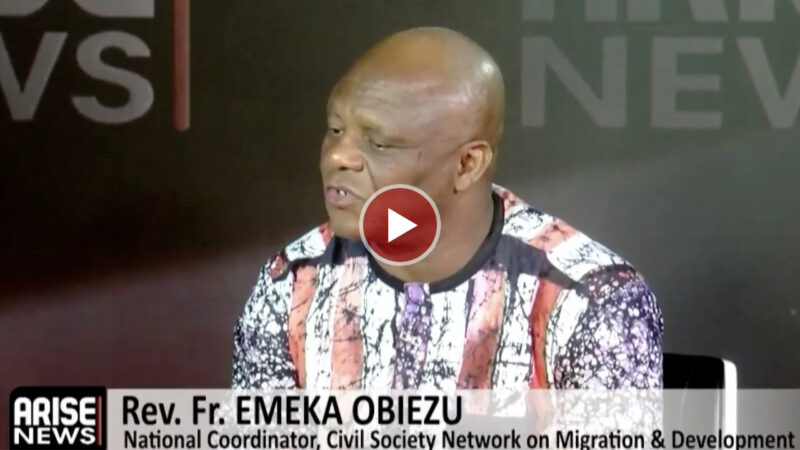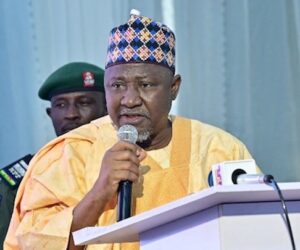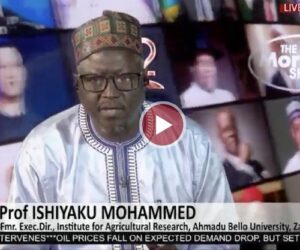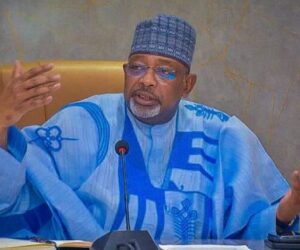The National Coordinator of the Civil Society Network on Migration and Development, Rev. Fr. Emeka Obiezu, says Nigeria’s updated National Migration Policy will “provide a holistic framework” that protects migrants’ rights, expands legal migration pathways and reduces the pressures driving young Nigerians into irregular travel.
Speaking an interview with ARISE News on Saturday, Obiezu said the new policy is built on six priority areas designed to make migration safer, rights-based and development-driven.
He said:“What the policy provides for us is a holistic approach to migration. It is not just about stopping people from moving irregularly — although that is key — but about exploring the wider dimensions that migration brings to national development.
It will protect migrants’ rights and initiate development-led actions that make people feel they have a choice to stay in the country, and if they have to move, they can move with dignity and honour.”
Obiezu explained that the first priority area of the policy seeks to facilitate and expand legal mobility while harnessing the benefits of migration for national development, including diaspora contributions.
He said:”The policy looked at six priority areas. The first is to enhance legal mobility and legal migration, and then harness the benefits migration brings to development, especially what the diaspora contributes.
It gives the actors implementing the policy a framework to engage in different development sectors, identify the critical groups targeted by these interventions and ensure they remain close to them. That is why we are looking at youth incentives and youth capacity, as well as regular migration pathways such as skills programmes.”
He added that the policy also covers the rights and safety of migrants inside Nigeria, including foreigners resident in the country.
Obiezu said the policy also provides procedures for the return and reintegration of Nigerians whose immigration status cannot be regularised abroad.
“The policy provides that if these people have to come back, they must be returned in dignity, admitted back into the country and helped to integrate in a sustainable manner,”he said.
Another key priority, he noted, is establishing reliable migration data to support evidence-based decision-making.
Responding to questions about implementation timelines, Obiezu said the revised document was already validated.
He said:“The process of reviewing the policy, which started last year, ended on 29 April when the technical working group validated the document. It has now been transmitted for consideration by the Federal Executive Council, and as soon as it is adopted, implementation will begin. All actors are ready.”
Addressing why Nigerians should avoid irregular routes, Obiezu stressed that migration is a fundamental right, but irregular travel comes with high personal risks.
He said:“To migrate is a human right of every person. If the conditions where you are become unfavourable, the Universal Declaration of Human Rights allows you to move.
But what many people don’t know is that most Nigerians who migrate actually use regular pathways. Only a very few use irregular routes. Irregular migration includes travelling through dangerous channels or overstaying or working outside your permitted status abroad.”
He warned that irregular status leaves migrants vulnerable.
“It exposes you to exploitation and discrimination. People can use your vulnerability to maximise profit, pay you less and deny you the protections that regular migration offers,”he said.
He added that the UN discourages the term “illegal migrants”.
“The United Nations in 1975 said such people should not be called illegal migrants, because that term criminalises them. They should be treated with dignity, and many countries now use dignified return systems when sending people back to their countries of origin.”
Reacting to viral debates about Nigerians publicising foreign citizenship, Obiezu said the reasons are personal and should not be framed as national shame.
He said:“These questions are personal. People are simply saying they have found a happy place to be. That is what life is about.
What we should be concerned about is what makes people feel they cannot thrive in the place they call home. Even those who get Canadian or Western citizenship have nostalgia for Nigeria. Their longing for home never ends.”
He said this is why the new policy emphasises creating opportunities at home.
“Every agency of government must make constructive efforts to ensure opportunities that enable people to thrive — security, jobs and basic amenities,”he said.
Obiezu explained that Nigeria has adopted a whole-of-government and whole-of-society approach, allowing civil society to work alongside government to promote safe migration.
He said:“Nigerian migration governance has done well by using a whole-of-government and whole-of-society approach. All stakeholders — state and non-state — are enabled to participate effectively to ensure safe and regular migration.
NGOs like ours take awareness to the grassroots and advocate for implementation. The National Commission for Refugees, Migrants and Internally Displaced Persons provides the platform for us to do this nationally and regionally.”
He noted ongoing collaborations with partners such as the EU, IOM and the UN Migration Trust Fund.
On Nigerians who decide to return after living abroad, Obiezu said both engagement and reintegration structures exist.
He said:“The Nigerians in Diaspora Commission provides a strong framework for engaging the diaspora, including those who want to come back or invest from abroad.
For those in very deplorable situations who want to return, we have the voluntary return, readmission and integration process, which helps them return with dignity and reintegrate sustainably.”
Boluwatife Enome
Follow us on:








